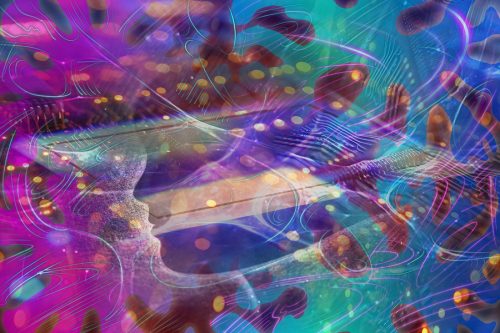To battle the novel coronavirus that’s been linked to Wuhan, China, researchers are using artificial intelligence to discover potential treatments, including already-approved drugs and completely new compounds. At the same time, the pneumonia-like illness has only gotten worse. The 2019-nCoV coronavirus had taken the lives of more than 600 people and infected more than 30,000, with cases documented in at least 25 countries.
Researchers at the British artificial intelligence startup Benevolent AI say they used the tech to search for existing approved drugs that might be helpful in limiting the virus’s infection. Another set of scientists affiliated with Deargen, a drug discovery company based in South Korea, say that they used deep learning to find various available antiviral drugs that could be investigated as a potential treatment (that research has not yet been peer-reviewed). Meanwhile, a Maryland-based biotech company, Insilico, said it used AI to come up with new molecules that could serve as potential medications, and it will now synthesize and test 100 of the compounds, according to Fortune.
Here’s how Benevolent described its work: The company’s researchers wanted to find an already-approved drug that could block the infection process. So they sent their AI looking for drugs, based on chemical properties that they knew the coronavirus to have, through a repository of an enormous amount of medical data, including scientific literature.
The system churned out a number of options, which were then whittled down to identify an already-approved drug called Baricitinib, which is typically used to treat moderate and severe rheumatoid arthritis. Now the researchers suggest it could be trialed as a potential treatment. Ivan Griffin, Benevolent’s co-founder, told Recode that while the company hasn’t applied for the right to test the drug in China, it has reached out to manufacturers that already produce the drug. It’s unclear how long it might take before a properly tested drug reaches patients.
The application of AI to the fight against the novel coronavirus comes as the role of the technology in health care expands. In fact, AI already helped epidemiologists flag early reports of the Wuhan coronavirus, as Recode reported last week. Ultimately, the hope is that the technology could make delivering health care more efficient. But the use of artificial intelligence in health care also creates new challenges, like algorithmic bias, and raises new questions for drug regulators.
Find the original article here.
AIWS Innovation Network (AIWS-IN) has the project “AI for Humanity”, lead by professor David Silbersweig, Academic Dean of Harvard Medical School, and co-founder of the AIWS-IN.










